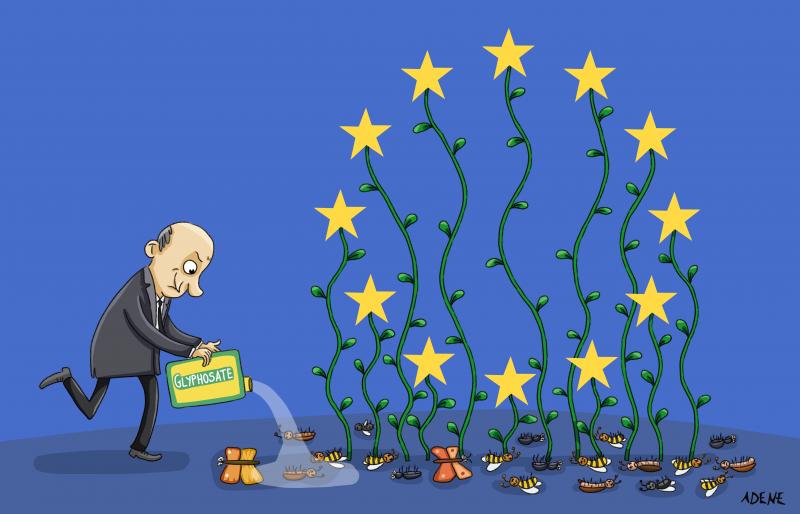On November 16 the European Commission announced that it would renew the approval of glyphosate for a period of ten years. While this authorisation, granted without the agreement of the member states due to lack of consensus, is accompanied by conditions and restrictions, it has nevertheless provoked the anger of green parties and environmental organisations.
Since 2015, glyphosate, the most widely used herbicide in Europe and the active ingredient in the infamous Monsanto Roundup, has been classified by the International Agency for Research on Cancer (IARC), an agency of the World Health Organization (WHO), as a probable carcinogen. a judgment that had been strongly contested at the time.
Among other things, the Commission based its decision on a report from the European Food Safety Authority (EFSA), which analyses 2,400 scientific studies and identifies no "critical area of concern" preventing glyphosate’s renewal. However, the EFSA report failed to convince the most ardent critics of glyphosate, as the validity of studies defending the herbicide has been challenged numerous times in the past.
Do you like our work?
Help multilingual European journalism to thrive, without ads or paywalls. Your one-off or regular support will keep our newsroom independent. Thank you!
















